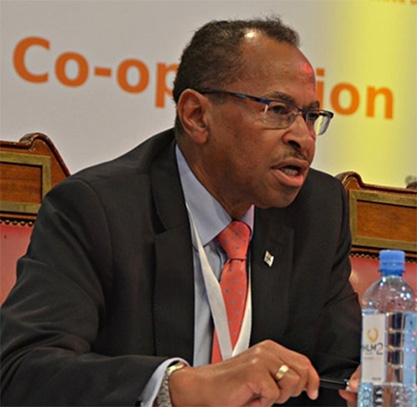
Jimmy Smith led an ILRI delegation to the Second High-Level Meeting of the Global Partnership for Effective Development Cooperation (HLM2 GPEDC), which was held in Nairobi, Kenya 28 Nov–2 Dec 2016 (photo credit: ILRI/Susan MacMillan).
The International Livestock Research Institute (ILRI)
Emerging ag inc. assists the GLAD project coordinated by the International Livestock Research Institute. The project has helped to raise the profile of livestock in global development discussions and includes the development and implementation of an outreach strategy. Livestock are powerful, if yet underutilized, instruments for leveraging the systemic changes we need to meet all the world’s 17 Sustainable Development Goals. The livestock sector contributes directly to 7 of the SDGs and is particularly central to ending poverty and hunger while creating sustainable food systems globally.
Engagement in Global Platforms
ILRI has been involved in important discussions on the development agenda, including:
- The 2021 Food Systems Summit (FSS)
- The Africa Green Revolution Forum (AGRF)
- The High-Level Political Forum on the SDGs (HLPF)
- The UN Commission on the Status of Women (CSW)
- The UN Committee on Food Security (CFS)
- The UN Environment Assembly (UNEA)
Donor Strategy
Addressing the long-term shortfalls in development assistance for livestock is also important. Although livestock represents 40-60% of the agricultural GDP in most countries, it receives only 4% of development funding. This is even though livestock is often an early portal of entry to food production. While access to land for fields may often be expensive or difficult to obtain, having a cow or a chicken can mean food for the household and regular income without waiting for harvest. Emerging ag assists in the implementation of a donor strategy for the GLAD project that intersects with the pressing issues of climate change, women in agriculture, and social stability.
Useful links:

Jimmy Smith, left, takes part in a panel discussion chaired by USAID.
